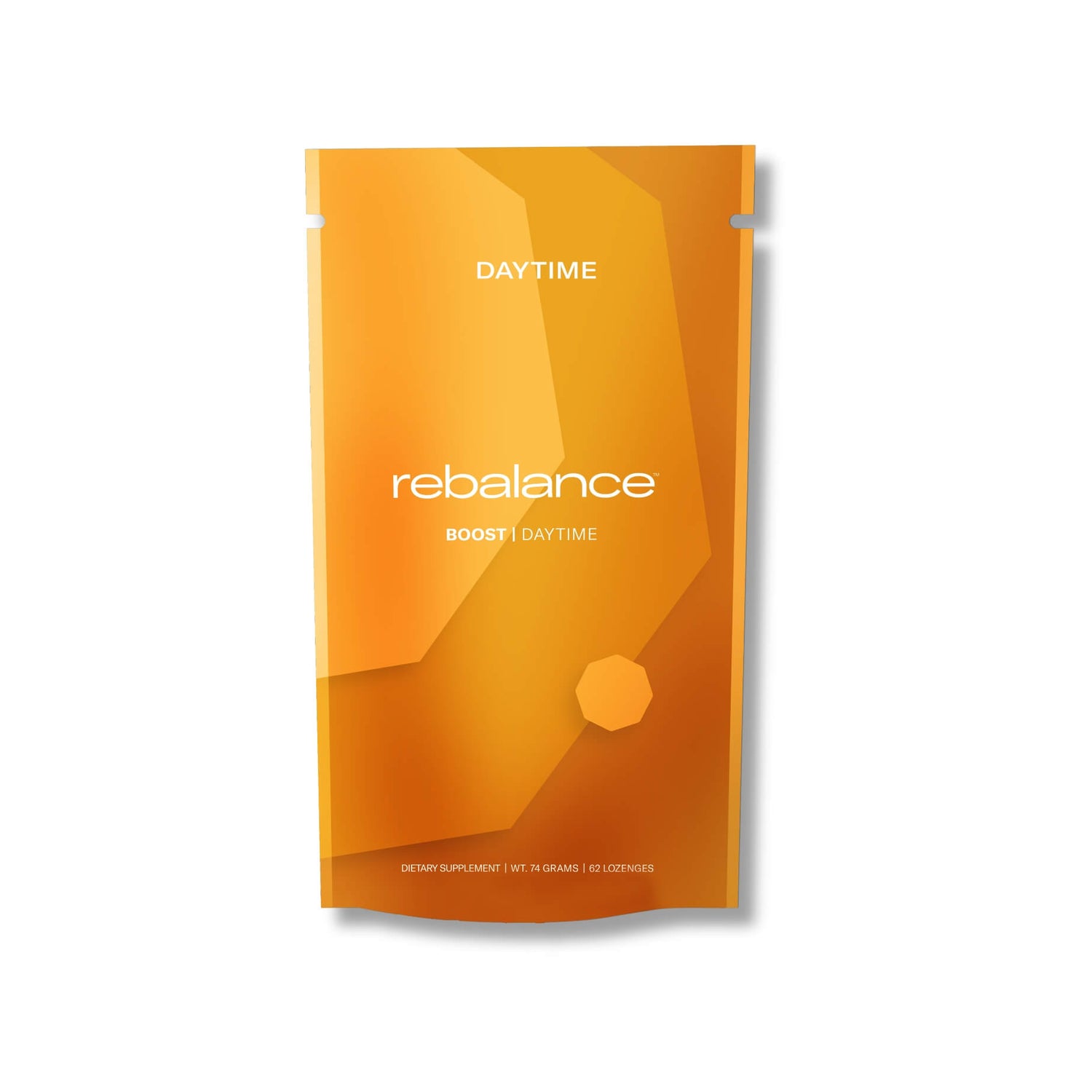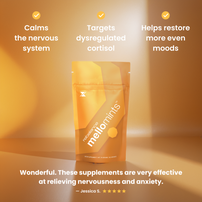That alarm sound is actually ruining your day—here’s why (and what to do about it)
10/16/2025 by Rebalance Health

The powers that be have gaslit us into a lot of things, but I’m currently quite salty about the way we’ve all been gaslit by our phones into thinking it’s normal to wake up like we’re fleeing a five-alarm fire.
You know the sound I’m talking about. That ear-splitting “Radar” alarm that Apple decided should be the default way millions of us are jolted into consciousness every single morning. We’ve gotten so used to it that we don’t even question it anymore. We just accept that waking up should feel like getting ambushed.
But TikTok (bless it) recently called this out, and now people are realizing that just hearing this sound—even at 2 p.m. on a random Tuesday—triggers a full-body panic response. Like Pavlov’s dogs, but instead of drooling, we’re having a cortisol party nobody asked for.
I lived this. For years, I woke up to Radar because… I don’t know, it came that way? And it worked? But once I heard people talking about how genuinely stressful that sound was, I realized I hadn’t been “fine with it”—I’d just normalized feeling like garbage every morning. So I switched to “Daybreak,” that dreamy, chimey iPhone tone someone on Reddit swore by. (Yes, I’ve tried the fancy Hatch and everything else. I always come crawling back to my phone.)
That first morning at 6:15, I woke up feeling like a person instead of a startled woodland creature. It was soothing. I didn’t know alarms could be soothing.
But then—plot twist—a couple weeks later, I set a later alarm and forgot to change the sound back. When Radar went off, I woke up like a terrified Pop-Tart ready to defend my entire family and possibly the neighbors. My heart was pounding. I could literally feel the cortisol flooding my system. It was awful. The alarm sound stress was real.
So naturally, I needed answers. I reached out to Dr. Amber Malanowski, a Licensed Naturopath Doctor and Medical Advisor at Rebalance Health, to understand what the hell is actually happening to our bodies when we wake up this way—and why it matters way more than we think.
Your body thinks your alarm is a lion
Here’s what’s going down in your brain and body when Radar (or an equally obnoxious alarm sound) goes off: absolutely nothing good.
“When that loud, abrupt alarm blares, your body doesn’t think, ‘Oh, it’s just my phone.’ It thinks, ‘Danger!'” Dr. Malanowski explains. “In a split second, your brain’s alarm center (the amygdala) flips on and sends out an SOS. This activates your stress system, flooding your body with adrenaline and cortisol—the very hormones that prep you for fight-or-flight.”
So yeah. Every morning, your nervous system is basically responding to your alarm like you’re being chased by a bear. Your heart races, your blood pressure spikes, you’re wide-eyed and wired before you even know what day it is.
And it gets worse. Because now your brain has learned to associate that sound with stress, it doesn’t even need to be morning anymore. “Over time, your brain has learned to connect that ‘Radar’ tone with the stressful experience of being jolted awake,” says Dr. Malanowski. “Now, just hearing it, even in the middle of the day, can set off the same stress response.”
Congrats! You’ve Pavlov’d yourself into a panic response. We love that for us.
The cortisol spike that haunts your whole day
Let’s talk about what that morning cortisol surge actually does to you—because it’s not just a rough few minutes.
Normally, cortisol rises gently in the morning to help you wake up naturally, then tapers off during the day. It’s supposed to be this nice, gradual thing. But a harsh alarm? “Instead of a gentle rise, you get a cortisol surge, an oversized spike that can stay elevated for hours,” Dr. Malanowski says. “This means your body is already working overtime before you’ve even had coffee.”
And when you start the day in fight-or-flight mode, your brain stays primed to scan for threats instead of, you know, functioning like a reasonable human. “Everyday challenges—a toddler tantrum, traffic, an overflowing inbox—feel that much bigger because your body is already in overdrive,” she explains.
For those of us already juggling the mental load of motherhood (which is to say: all of us), this is especially brutal. “When you add an alarm-induced cortisol spike on top of that, it’s like stacking bricks on an already full backpack,” Dr. Malanowski notes. “Irritability shows up faster, fatigue lingers longer, and the ability to stay calm in the chaos gets harder.”
Oh, and here’s a fun fact that’ll haunt you: “One harsh alarm can throw off your stress system for up to 16 hours,” says Dr. Malanowski. So that 6 a.m. wake-up isn’t just ruining your morning—it’s potentially wrecking your entire day, all the way to bedtime.
Your kids are catching your alarm stress too
If you thought this was just about you, think again. “Kids are extra sensitive to stress signals,” Dr. Malanowski warns. “If they’re startled awake by your alarm, their little bodies can also flood with cortisol, just like yours. Repeated disruptions can leave them groggy, irritable, and more likely to resist morning routines.”
So basically, your alarm isn’t just setting you up for a chaotic day—it’s potentially setting the tone for your entire household. Cool, cool, cool.
But here’s the good news: “The first half-hour after waking sets the tone for your entire day,” says Dr. Malanowski. “A calm wake-up supports your body’s ‘rest and restore’ system, steadies your hormones, and helps your brain’s emotional regulation center work better.” Translation? When you start gently, it’s easier to respond to your kids with patience instead of… well, whatever the opposite of patience is at 6:30 a.m.
How to actually wake up like a human
If you’re ready to break up with Radar (and you should be), here’s Dr. Malanowski’s game plan:
Start tonight. Swap that harsh alarm for a sunrise clock or a gradual soundscape—something that mimics natural wake-up cues like soft music, nature sounds, or tones that slowly build. “This helps keep your cortisol rhythm steady and your morning calmer,” she says.
Worried a gentle alarm won’t actually wake you? Dr. Malanowski says you can retrain your body: “Start with a combination: a sunrise lamp paired with a sound that builds gradually. Over time, your nervous system learns these cues and begins to anticipate them, making them just as effective as a blaring alarm, without the stress hangover.”
If you’re sticking with your phone (no judgment, we’ve all tried and returned the fancy gadgets), choose apps or built-in sounds that let you gradually increase volume. “The real secret isn’t the specific sound but how gentle and progressive it is,” Dr. Malanowski notes.
Keep your phone across the room so you can’t hit snooze too easily. Pair waking up with something grounding—drink water, stretch, take a few deep breaths. And if you’re struggling with sleep quality overall, Dr. Malanowski recommends incorporating a natural sleep aid like Rebalance Health’s DREAM mints to help calm your mind and lower cortisol levels before bed.
Most importantly? Stay consistent. Your body thrives on routine, and repetition makes mornings noticeably calmer over time.
The red flags you’re already living with
Not sure if your current alarm is the problem? Dr. Malanowski says watch for these signs: “If your heart pounds the moment you wake up, you dread the sound of your alarm, or you feel irritable and drained even after a full night’s sleep, those are red flags. Your body is telling you that your wake-up method may be disrupting your natural rhythms.”
Honestly? If reading this article made you realize you’ve just been white-knuckling your way through jarring wake-ups because “that’s just how it is,” that’s your sign.
“Give yourself permission to wake gently,” Dr. Malanowski says. “It’s not laziness—it’s science. A softer alarm helps regulate your stress hormones and sets a calmer emotional climate for your whole household. Shifting your mornings from ‘crisis mode’ to ‘restorative mode’ is one of the most powerful gifts you can give yourself—and your family.”
And look, we’re all just out here doing our best with the chaos of parenting. But if one simple phone setting change can help us start the day feeling less like a terrified Pop-Tart and more like an actual functioning human? I’ll take it. We deserve mornings that don’t feel like an emergency.
Now if you’ll excuse me, I have a date with the Daybreak alarm tone and—fingers crossed—a calm Tuesday morning.
Overview

Stay Calm. Sleep Deep. Wake Clear.
A lozenge that supports deep sleep, better REM, and calmer nights. Without melatonin — unless you want it.














